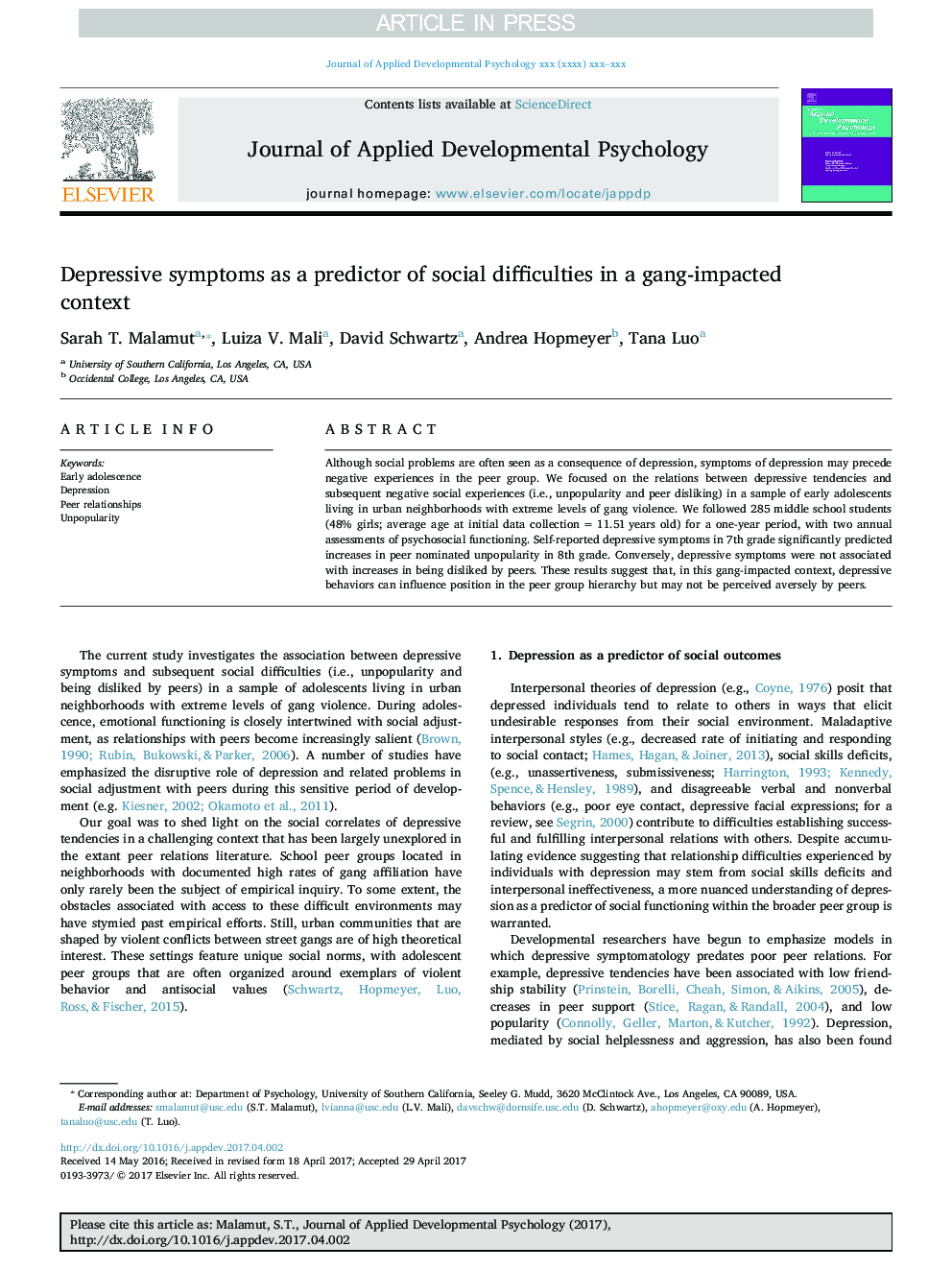| Article ID | Journal | Published Year | Pages | File Type |
|---|---|---|---|---|
| 4939109 | Journal of Applied Developmental Psychology | 2017 | 8 Pages |
Abstract
Although social problems are often seen as a consequence of depression, symptoms of depression may precede negative experiences in the peer group. We focused on the relations between depressive tendencies and subsequent negative social experiences (i.e., unpopularity and peer disliking) in a sample of early adolescents living in urban neighborhoods with extreme levels of gang violence. We followed 285 middle school students (48% girls; average age at initial data collection = 11.51 years old) for a one-year period, with two annual assessments of psychosocial functioning. Self-reported depressive symptoms in 7th grade significantly predicted increases in peer nominated unpopularity in 8th grade. Conversely, depressive symptoms were not associated with increases in being disliked by peers. These results suggest that, in this gang-impacted context, depressive behaviors can influence position in the peer group hierarchy but may not be perceived aversely by peers.
Related Topics
Social Sciences and Humanities
Psychology
Applied Psychology
Authors
Sarah T. Malamut, Luiza V. Mali, David Schwartz, Andrea Hopmeyer, Tana Luo,
